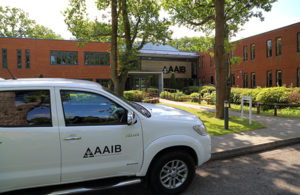UK completes over one million SARS-CoV-2 whole genome sequences
The UK has surpassed one million SARS-CoV-2 genome sequences uploaded to the international Global Initiative on Sharing Avian Influenza Data (GISAID) database, meaning UK represents 24% of all samples uploaded during the pandemic. The GISAID database stores genome sequences from across the world to inform the global pandemic response.
Genomic sequencing provides a better understanding of how the virus is evolving to help inform the global pandemic response. Significant UK discoveries have been made as a result of genomic sequencing throughout the coronavirus (COVID-19) pandemic.
These include identifying the Alpha variant, which helped to explain epidemiological changes in data and transmission.
By tracking the Beta variant, which was first identified in South Africa, the UK was able to detect new cases and prevent widespread transmission.
Health and Social Care Secretary Sajid Javid said:
The UK is a world leader in genomics, and our scientific experts play a vital role in the global community, sharing their knowledge and findings as part of a worldwide effort to tackle the COVID-19 pandemic.
Every single test sequenced helps us to stay ahead of variants and learn more about this virus.
The newly established UK Health Security Agency (UKHSA) will be on the frontline protecting the nation from infectious diseases and other public health threats.
Building upon the work of NHS Test and Trace over the course of the pandemic, it is responsible for continuing to develop the UK’s whole genome sequencing capability, in partnership with scientific organisations including the Wellcome Sanger Institute and COVID-19 Genomics UK (COG-UK) consortium.
Dr Jenny Harries, Chief Executive of UKHSA, said:
Sequencing one million genomes is a huge achievement and a testament to the UK’s scientific strength and expertise. We are hugely grateful to everyone who has worked hard and at incredible speed to make this happen.
Global co-operation is key in the fight against COVID-19 and the UKHSA is proud to play its part. The UK’s genomic sequencing technology is world-leading and we are playing a vital role in informing the global response to the pandemic.
Whole genome sequencing (WGS) is a method for analysing entire genomes and has been used to identify COVID-19 variants from samples taken from infected people.
The UK started to sequence samples from people who had been infected with SARS-CoV-2 in March 2020. These sequences are then uploaded to the international GISAID database. This allows countries to understand what is happening internationally and to take action to help mitigate transmission across borders, as well as to isolate and respond to new variants.
Labs used for genomic sequencing are located across the devolved nations including Glasgow, Milton Keynes, Newport, and Antrim.
New variants are the most serious risk to global recovery from the pandemic, particularly those which have characteristics that make them more transmissible, cause more severe illness or are more likely to evade immune responses developed from vaccination or prior infection. By understanding which variants are emerging and circulating in the UK and around the world, the UK is able to respond early and take steps to help keep people safe.
Through genomic sequencing the UK has so far detected a total of 5 variants of concern and 11 variants under investigation, helping to inform the public health response to the pandemic.
The UK’s contribution to GISAID makes it the second largest contributing country and represents around a quarter of all global samples sequenced across the world to date. Through the New Variant Assessment Platform (NVAP), the UK is making its world-leading capability available to other countries to support the global response to the pandemic.
The UK is working with global partners to fill global sequencing capability gaps, either by helping other countries build their sequencing infrastructure or processing samples in the UK if there is no capability within a country.
By using the UK’s world class scientific abilities, the UKHSA will play a major role in protecting people from COVID-19 and future emerging health threats at home and abroad.
Professor Sir Mike Stratton, Director of the Wellcome Sanger Institute, said:
Genomic surveillance of SARS-CoV-2 is crucial to tracking the pandemic in real time. Genomic data enable researchers to identify new virus variants, assess their relative abilities to spread and help public health authorities detect and respond to local outbreaks faster.
The genomes also inform the development of new vaccines and vaccine boosters and, critically, will allow detection of vaccine escape, should it occur.
The completion of over one million SARS-CoV-2 genomes is an extraordinary testament to the monumental efforts of many people, at the Wellcome Sanger Institute, across the whole COG-UK network and elsewhere, who have contributed in multiple and diverse ways.
Professor Sharon Peacock, Executive Director and Chair of COG-UK said:
Since the start of the pandemic, more than 600 members of COG-UK based in the 4 public health agencies, numerous universities and the Wellcome Sanger Institute have worked tirelessly to generate SARS-CoV-2 genomes to support the pandemic and better understand the virus and COVID-19.
This has been underpinned by collaborations with NHS testing labs, Lighthouse Laboratories, NHS Test and Trace and DHSC and the Cloud Infrastructure for Microbial Bioinformatics (CLIMB) database.
We are delighted that, in partnership with UKHSA, one million genome sequences have now been deposited into the GISAID database, enabling pathogen genomics to inform infection control, public health policies and the development of vaccines and therapeutics, along with advancing the understanding of SARS-CoV-2 biology and evolution.

